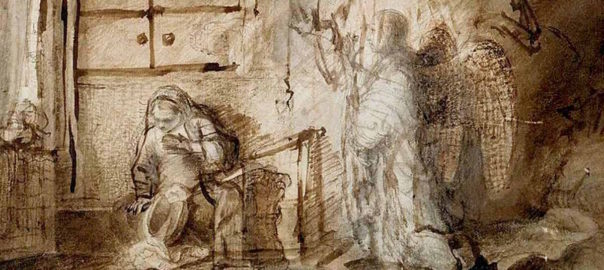
Thank you for your desire for thoughtful reflection. My aim is the renewal of civil and insightful conversation in the public square. My life has been shaped by positive examples of women and men fiercely debating important issues without personal insults. I have been influenced as well by historical analysis of three centuries of political, religious, and social diversity within a framework of mutual respect. As mentioned in my first letter, America’s founding affirmations of freedom of religion and redress, assembly and speech are a positive historical influence.
The polarization of the public square has intensified in the past quarter century, not only among political activists, but in matters of moral, religious, and social concern. While a silent percentage of any society simply wakes up each day aiming for a better life for their families, the chattering classes take the air out the room with competing ideologies and narratives that celebrate activism and subjectivity, not the relentless pursuit of truth. Among much of the Western elites, we see a “post-Truth” ethos that eschews objectivity and promotes particular visions of what is best for humankind.
These currents are especially present when we look at being human and male and female identity. In Letter #2, some foundations for identity and purpose were presented. These are offered as starting foci for dignity and mutual respect, not theocratic coercion. Seeing each person as a divine image-bearer and of equal worth is essential for a free society. Honoring biological distinctions while not imposing oppressive limitations and stereotypes is also important for peacefulness in a pluralistic society.
There are three points of contention concerning identity that matter for human flourishing. Drawing on both ancient wisdom and modern empirical data, we can offer clarity in the confusion and reflection over reaction.
Principle 1: Our humanness can unite men and women, who share more in common that we realize. Men and women have diverse personalities and temperaments, skill sets and passions, gifts and competencies that make our world better when used well. While biological differences are real and influence fields of work, shared affections and interests can help friendship and mutual respect flourish. Young women that love mathematics and science do not need to be redirected to other humanities. Young men of sensitive temperaments do not need to be coerced into machismo molds.
Principle #2: Men and women are different, and sexual identity is fixed at birth. The small percentage of biological intersex anomalies do not change this overall rule. Persons who struggle with real body dysphoria deserve love, respect, and excellent psychological care so they become comfortable in their designed identity. If someone has believed the deceptive social contagion of gender fluidity and has engaged in chemical or surgical alteration of their bodies, they need counsel and compassion.
Principle #3: Gender “constructs” have become a mask for harmful self-invention and anarchistic confusion of empirical reality. Biological sex is a given. Social roles for male and female vary with cultures and deserve evaluation. Gender radicals argue for a distinction between the “sex assigned at birth” and chosen gender identity. While civic freedom allows for people to believe all kinds of things, it does not demand that thoughtful people agree with defiance of biological reality. If a biological male chooses to say he is female (a “trans woman”), he can do so but should not expect that all will agree. No amount of chemistry, surgery, or role adjustment change biological reality. The few studies exploring brain activity in trans people do not account for the commonalities of male and female or the fact that brains are altered by behaviors.
Until 10-15 years ago, biological sex was assumed, while sexual attractions varied, with a small percentage of women and men being same or both-sex attracted. Gender studies were focused on liberating all people toward a just and tolerant future. After gay marriage was enshrined in US law in 2015, gender activism metastasized and suddenly we have scores of identities and defining male and female is considered oppressive. In our next essay, we will look at the ideological roots of this anarchy.
What does this mean for positive public discourse and a civil society? Two thoughts are helpful here. First, there is no place for bullying or personal denigration of any person. This does not mean that we simply accept any affirmation of identity or allow children to receive treatments in defiance of parents. Toleration is living with our differences, not being coerced into celebrating a view contrary to one’s deepest beliefs. Second, “follow the science” must be liberated from its ideological straitjackets. Real empirical research in relentless pursuit of the truth deserves celebration.

